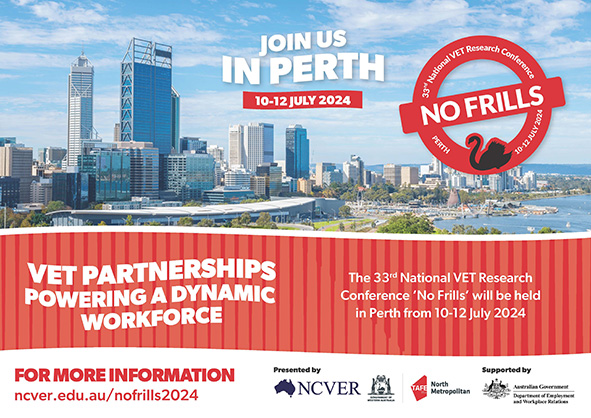Tom Karmel’s latest piece for the MacKenzie Research Institute argues that diplomas are becoming less important and significant in Vocational Education and Training (VET) “with the number funded by Government declining.”
This, he thinks, is not a good thing and is “an issue of fundamental importance for the VET sector, because diplomas represent the skilled end of what VET is offering.”
VET is losing out!
In an article in The Australian of 22 September this year, Tom and Bruce MacKenzie, the former and long-term Director of Holmesglen Institute, points out that, excluding Diplomas in Beauty, health qualifications such as enrolled nursing and education qualifications such as child care and early education, “the number of government-funded diploma commencements has declined by around 50 per cent between 2004 and 2020.” This has made VET “a big player in many areas, notably the natural and physical sciences, information technology, engineering and related technologies, agriculture, environmental and related studies, health, society and culture and the creative arts.” The paper by Karmel provides a good summary of the status of VET diplomas in these areas, though.
The downturn in VET diplomas, Karmel and MacKenzie’s article suggests, “parallels the expansion of higher education (one factor being a decline in the Australian Tertiary Admission Rank scores needed to get into university).” VET FEE-Help and ‘the debacle’ that surrounded it also didn’t help. The relative status of HE and VET is also an issue for young people in particular. One could also conclude that: “governments are happy to vacate the higher VET qualifications space to universities offering degrees’ the article’s authors point out. Also, they suggest that the argument that the high-level vocational approach taken by VET “can be a genuine alternative to the more academic approach (with its emphasis on research) provided by higher education is becoming less and less tenable,” unfortunately. So, it’s worth having a look at another article in this issue which examines occupational pathways and the relative value of VET and HE studies.
Karmel’s paper argues that if Diplomas are substantially lost “VET will be left as a provider of lower-level training to meet short-term industry needs.” University education, with its greater emphasis on research and theory, will be the only game in town in the delivery of training for professional occupations.
On the other hand, this approach flies in the face of what is happening in many comparator countries overseas. As the article points out:
“This is in contrast with international practice where there is diversity in terms of the delivery of higher-level education, with many examples of specialised, professional or practice-oriented institutions that complement the research-based universities. The grandes ecoles in France, university colleges in Scandinavia, colleges of higher education in Britain and polytechnic universities in Italy and Spain come to mind.”
As you might expect, Karmel is frustrated by what he sees as a policy bias against VET. As another article in the Australian, authored by Tim Dodd points out: “Everybody complains about the low status of VET. But every policy thing we do seems to make it worse.” “We’ve set up our unified (tertiary education) system so we have almost no diversity.” But “the current structures are very unhelpful. The main problem is that Australia’s tertiary education space is a dog’s breakfast.” As they point out:
“We have a fundamental confusion between qualifications and the institutions that deliver them. We have a qualification classification that separates VET and higher education.”
So, is there a way forward?
Karmel and MacKenzie’s article suggests there is – and it’s a new type of institution:
“If we wish to emulate these [overseas] models and to address the decline in Australia of practice-based education, we need a new type of tertiary education institution that straddles the VET and higher education worlds. We are envisaging a tertiary institution, focused on teaching and practice, delivering VET certificates, diplomas and bachelor degrees. Ideally, there would be pathways from certificates to diplomas to degrees.”
We do have dual sector institutions, and TAFEs and some private providers also deliver degree level studies. As is often the case, funding is the issue.
In his paper, Karmel concludes that what’s needed is a “rebalancing of government funding such that the Commonwealth is responsible for supporting tertiary education at levels five and above (that is, diplomas and above) with States being responsible for Certificates I-IV.” An amalgamation of TEQSA and ASQA might also be helpful as would ensuring that the AQF is “agnostic in respect to whether a bachelors degree is VET or higher education.”
However, he also concludes that: “there are very good reasons for VET to embrace bachelor degrees as a key element of vocational education, so that VET can become a genuine alternative to university. However, considerable institutional reform is necessary before this can occur.”








